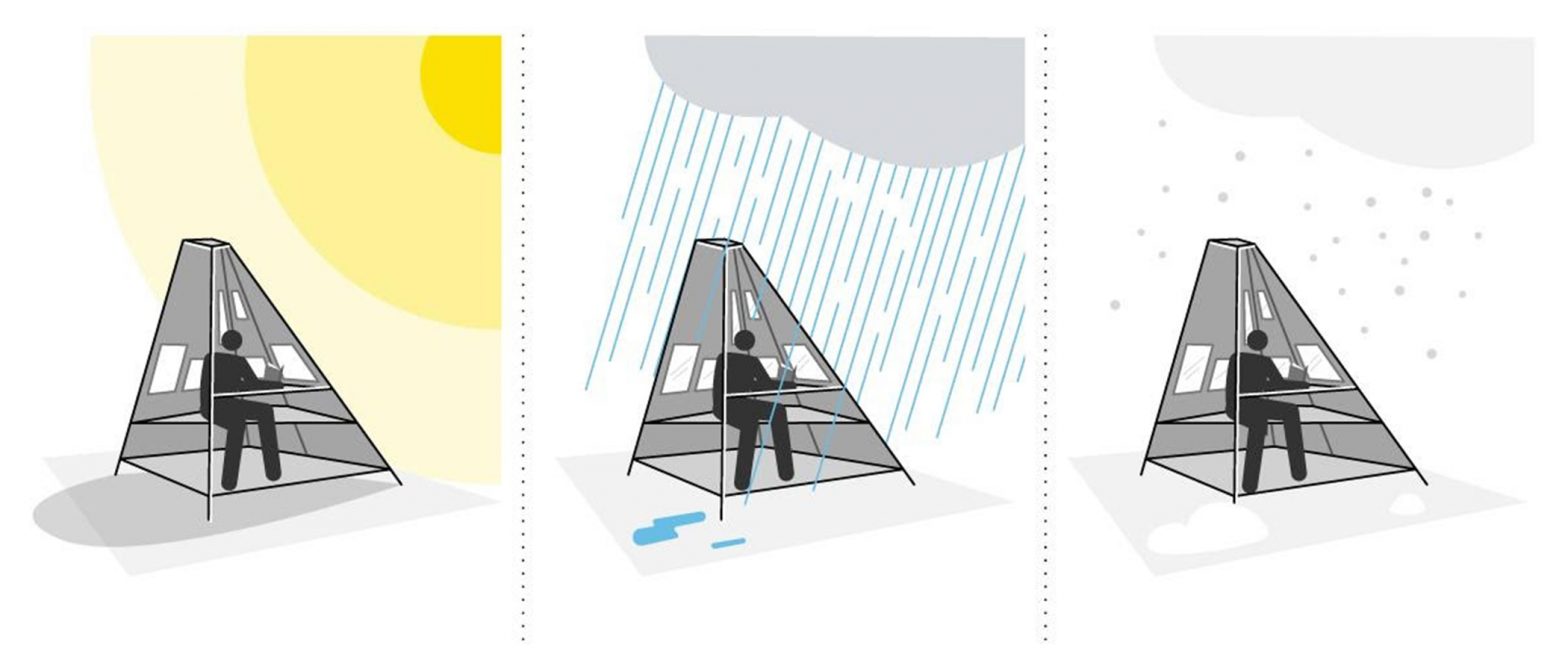Aalto Fablab’s NOT-19 is one of the four teams selected to participate in the FURNISH (Fast Urban Responses for New Inclusive Spaces & Habitat) project. The goal of the project is to digitally fabricate and deploy urban elements to adapt temporary public spaces to meet the new challenges and opportunities presented by the COVID-19 crisis.
Illustration above by Dorota Orlof.
NOT-19 aims to fabricate elements that form a communal outdoor space for lectures and socializing at the Aalto University campus. Being outdoors, the virus is less likely to spread from person to person as indoors.
The multipurpose construction will be suitable for all weather conditions, including winter. A multinational team of four designers, Krisjanis Rijnieks, Dorota Orlof, Ranjit Menon and Leda Vaneva, will consider several scenarios and build a final prototype of the collective multipurpose space for the Aalto University campus. The rules of the FURNISH project are to create an open-source design that can be shared in other public spaces, in other cities, anywhere in the world.
User tests are going to be used to meet the human aspects of the project. The prototype will feature heating, weather protection, wireless sound transmission and lightning design. Aalto Fablab will be the primary place for development work. You will be able to see the final result of team NOT-19 at the end of this year in Alvarin aukio (park next to the Harald Herlin Learning Centre).
Krisjanis Rijnieks, NOT-19 team leader adds,
“It is a challenging project in terms of the time and resources given. Having a digital fabrication facility, such as the Aalto Fablab as well as Aalto Studios set and costume design workshops, is going to play a critical role as there it is possible to move between the different aspects of the fabrication very quickly. We can use the laser cutter to create a scale model and tinker with electronics in parallel. We can then use the central space of the lab to quickly mock it together to test the result and define the next cycle of the development. We plan to use the spiral development approach advertised by the Fab Academy. We will use quick iterations with a clear outcome and set realistic goals for the following cycle. And to make things a bit more challenging – use open-source software only, such as FreeCAD, OpenSCAD, Blender and LibreCAD. We want the design to be usable by people who do not have access to commercial software.”
FURNISH is funded by EIT Urban Mobility, an initiative of the European Institute of Innovation and Technology (EIT).
https://furnish.tech
EIT Urban Mobility acts to accelerate positive change on mobility to make urban spaces more liveable.
https://www.eiturbanmobility.eu
